Transcripts at the Toronto March for Science
written by Andrew Zhai
photos by Rebecca Li
Last weekend, hundreds of thousands of scientists and science-allies gathered in cities all over the world for the March for Science. The goal? To get “political leaders and policymakers to enact evidence-based policies in the public interest.” Surely this is something that all scientists would get behind. However, in the days leading up to the March it became clear that feelings were firmly divided into three camps: those who supported it, those who had experiments to run at the time, and those who felt that it would amount to nothing but a superficial show of support. A truly cynical point of view, but if Kendall Jenner’s Pepsi ad has taught us anything it’s that there are people who view protesting as a kind of fashion statement. Those that would march and then completely forget about what they marched for the following week.
And so, leading up to the March, I was genuinely anxious about it. I knew I would go, but at the same time I was aware of the possibility that the awareness it raised might not result in any real change. That cynical voice in my head was silenced when I spoke to the marchers and asked about what they did and why they were there. Scientists made up a large chunk of the attendees to be sure (I spotted a man in a beekeeper outfit and had to find out more about him), but many of those that I spoke to covered a wide spectrum of professions. Some of them (a lawyer, a youth worker, a public servant) probably have a better understanding of public policy than any scientist could have, and some of them (Anmol & Rosie!) have a huge stake in how this all plays out. I left the March with the feeling that it could be a spark that results in something tangible. We have the support of people that understand policy and people that have a vested interest in the future, and whatever happens after this depends on what we do with their support.
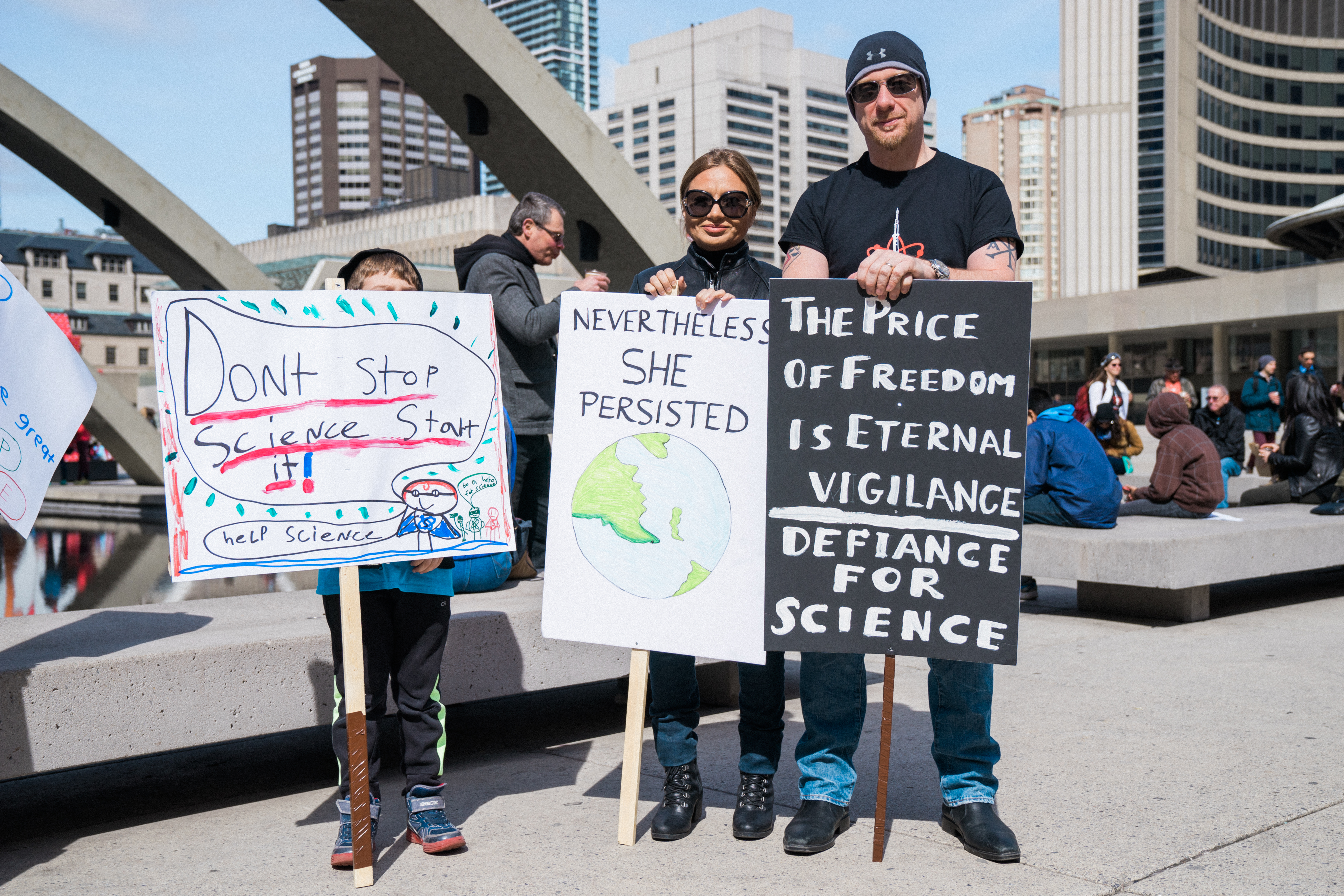
Name: Ben (far right)
Occupation: Lawyer
Why we’re marching: We think science is important because it seeks to answer key questions about humanity and ultimately tries to improve it. It lets us know who we are. Today, of course, there is a culture built around the propagation of false facts, and so for the sake of democracy we think it’s necessary to help promote science.
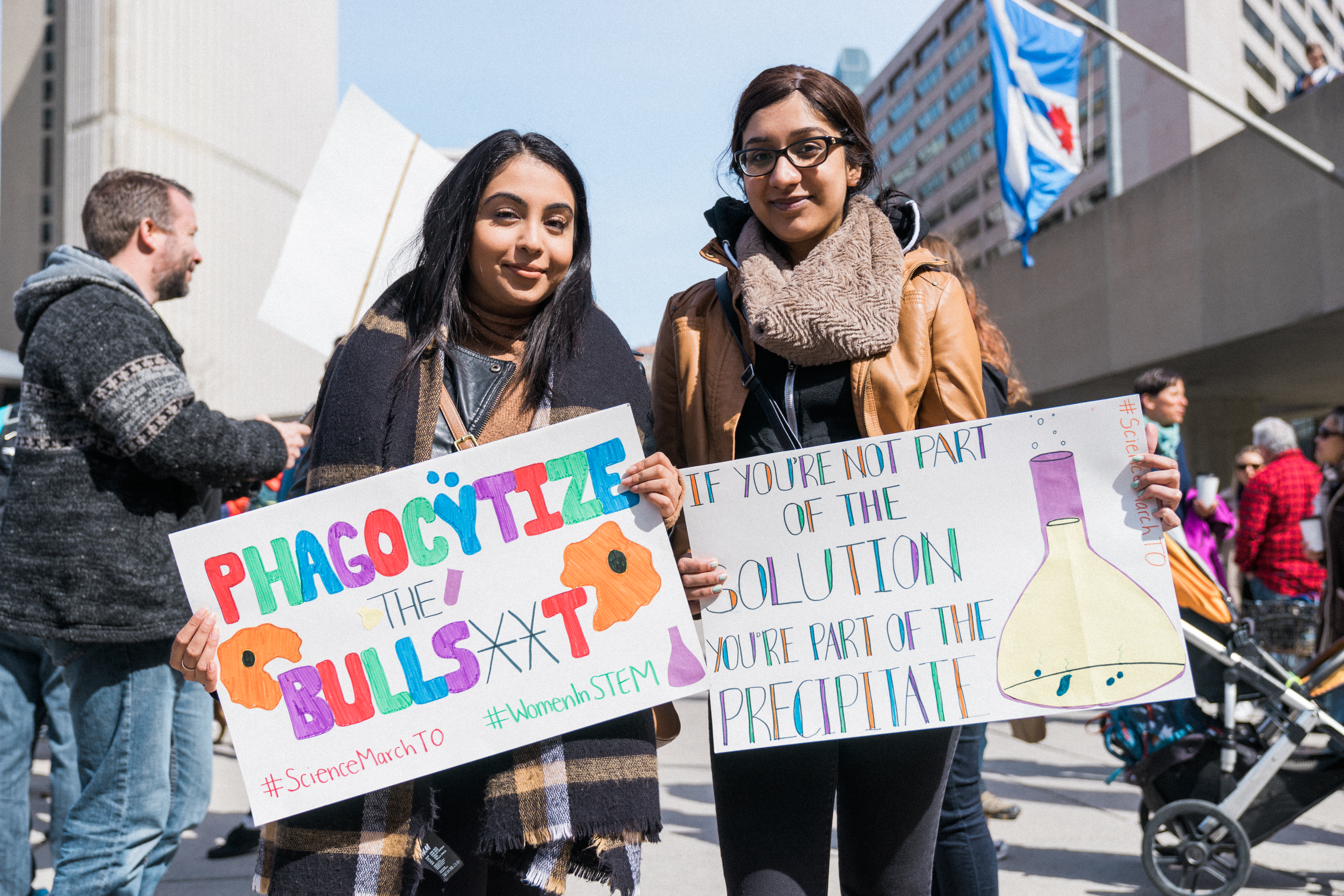
Name: Anmol & Rosie
Occupation: Students in Biophysics/Life science from York U
Why we’re marching: Science is an important part of our lives that people tend to take for granted. In general, it’s something that you’d think wouldn’t have to be defended, and yet here we are.
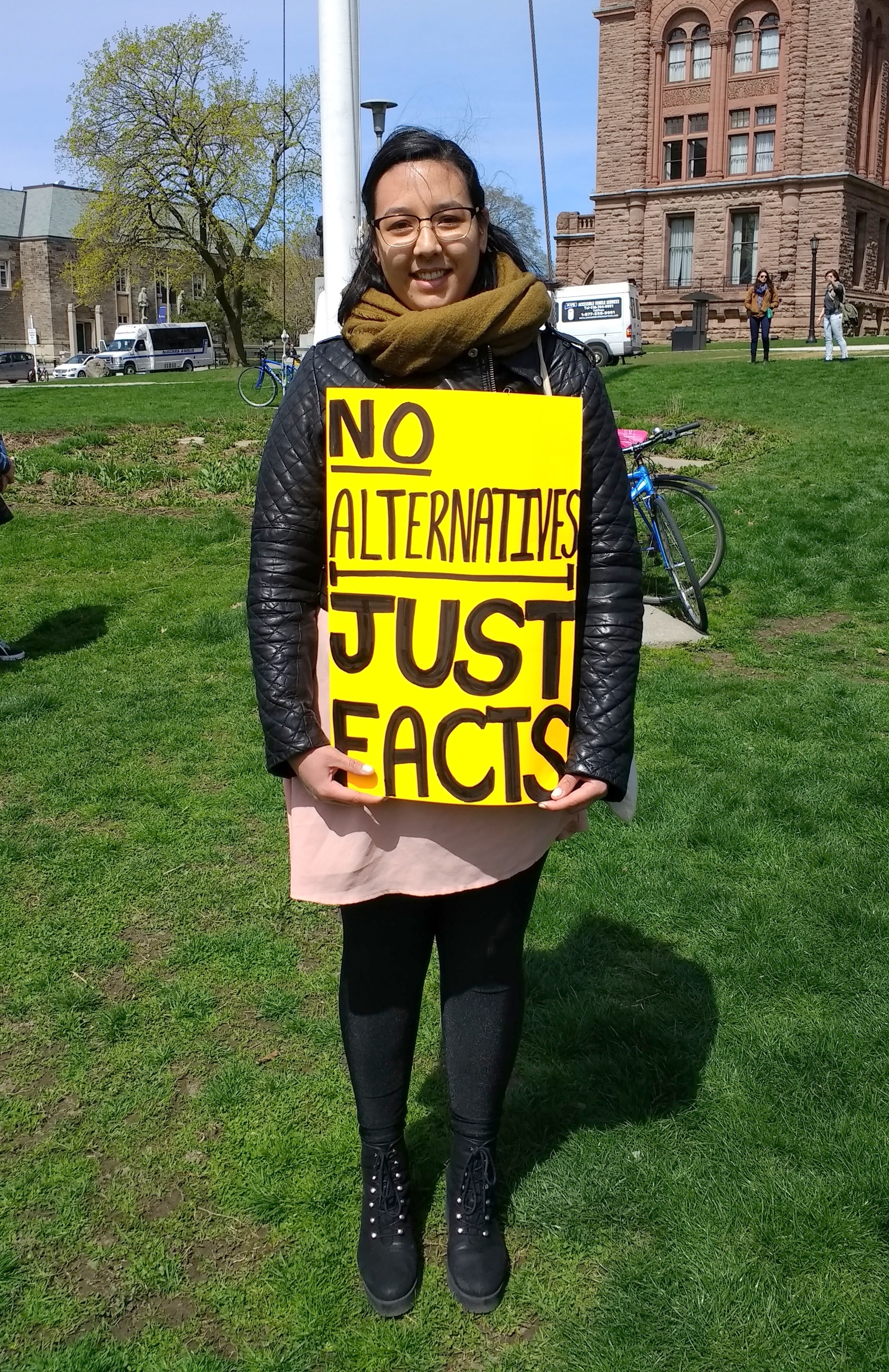
Name: Samantha
Occupation: Graduate Student/Co-President of the Molecular Genetics Graduate Student Association
Why I’m marching: Because science is important. I think we [Canadians] are doing a really good job of maintaining what we know our values are. For me, events like this are really important to reinforce that whatever might be happening south of the border and its global effects, that type of thought and that type of policy and those types of decisions should not be represented in our country. We govern in our way.
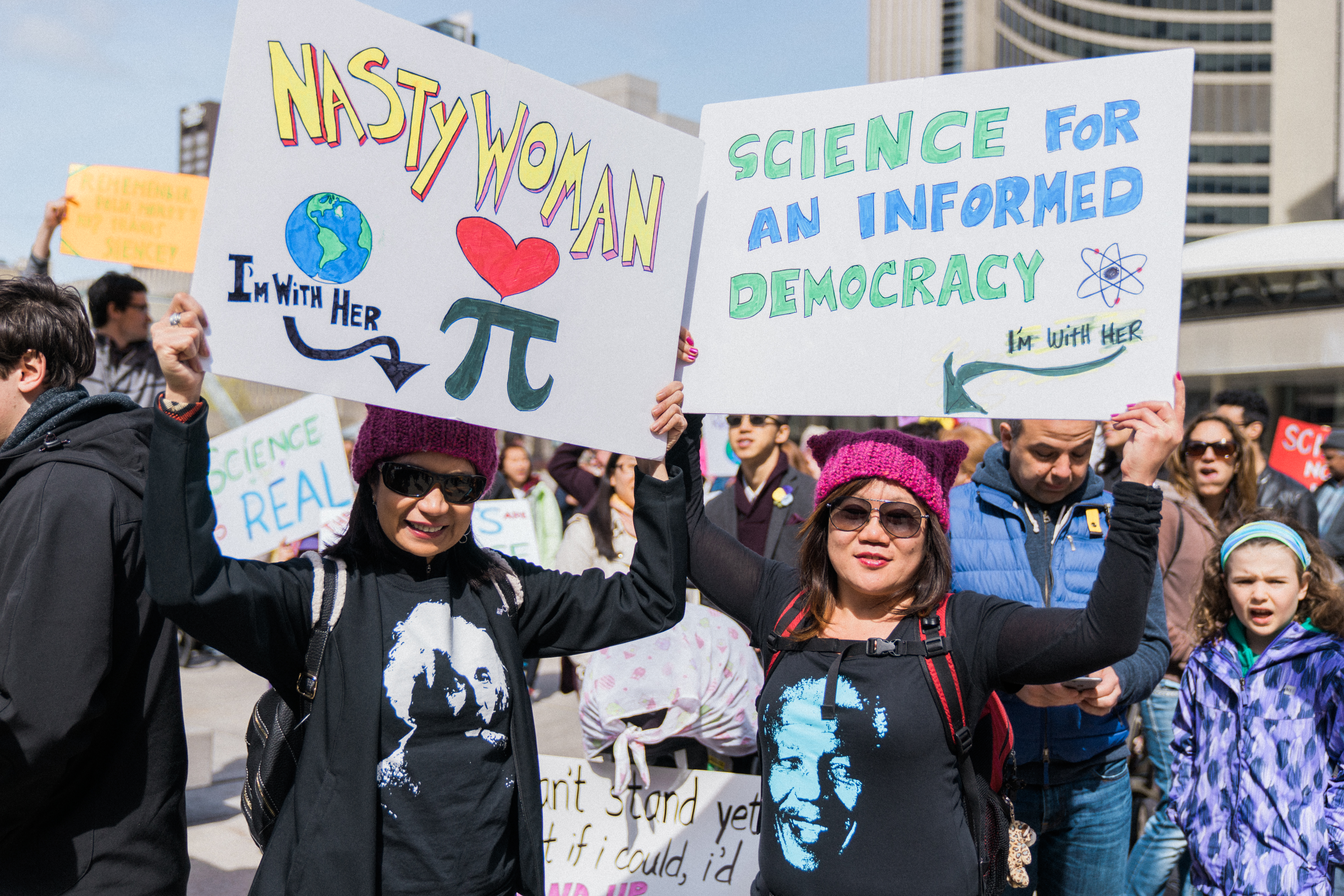
Name: Helene & Emma
Occupation: Consultant/Public servant in the health sector.
Why we’re marching: We’re here to make sure that evidence is not taken for granted, and in this political climate it’s important to have a voice. If we each do our own part for the environment, then as a collective we can effect change.
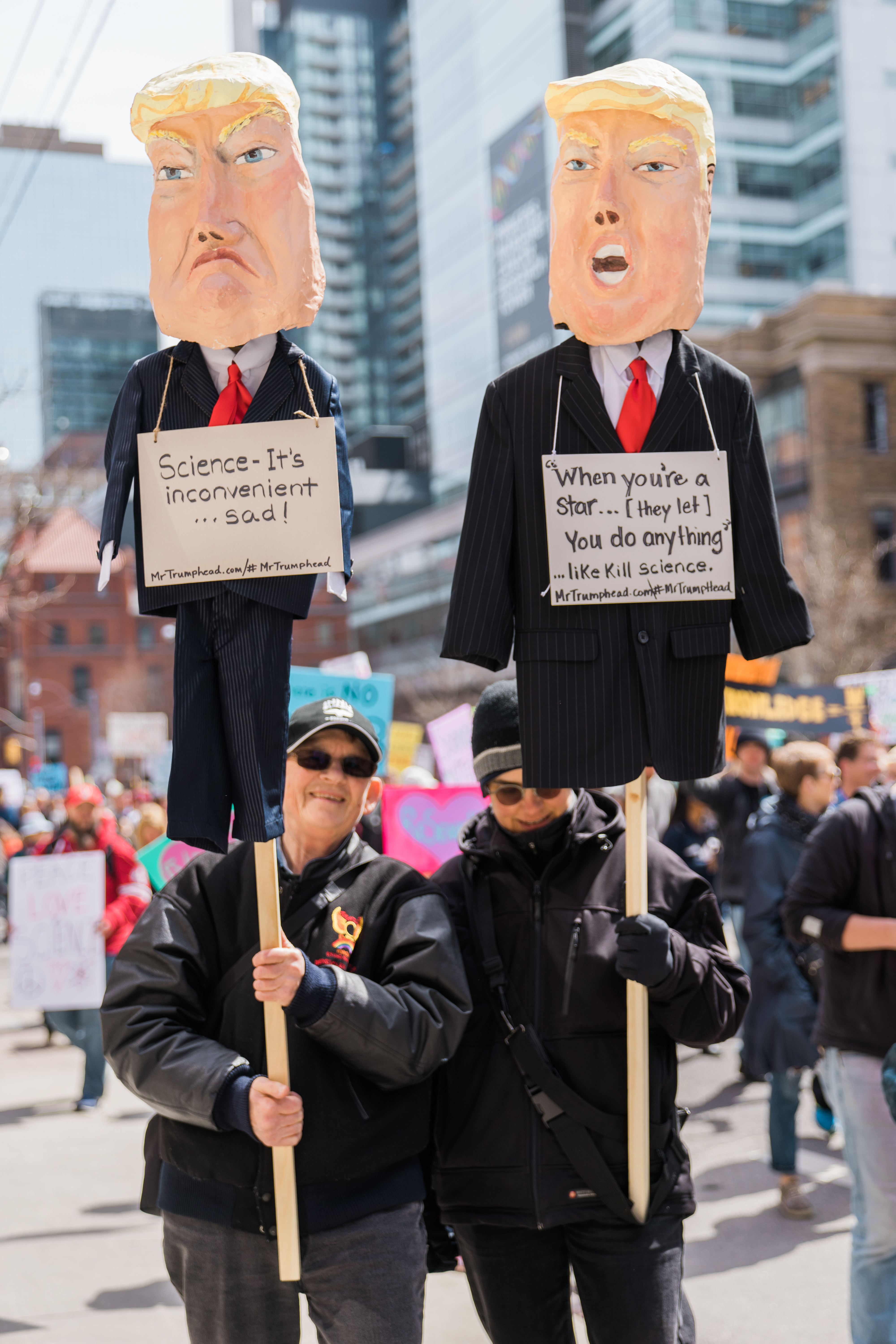
Name: Sue (left)
Occupation: Retired youth worker
Why we’re marching: I’m marching for science! In a democracy it’s hugely important to have evidence based, well, everything. I have a friend who works at a privately-funded research institute in the US, and a lot of people who work in publicly-funded research institutes are asking her about job openings because they’re not being re-funded. Medical research is so important to the average person. There are tonnes of issues right now with respect to politics and the average person might not relate to all of it, but medical research is so important to everyone.
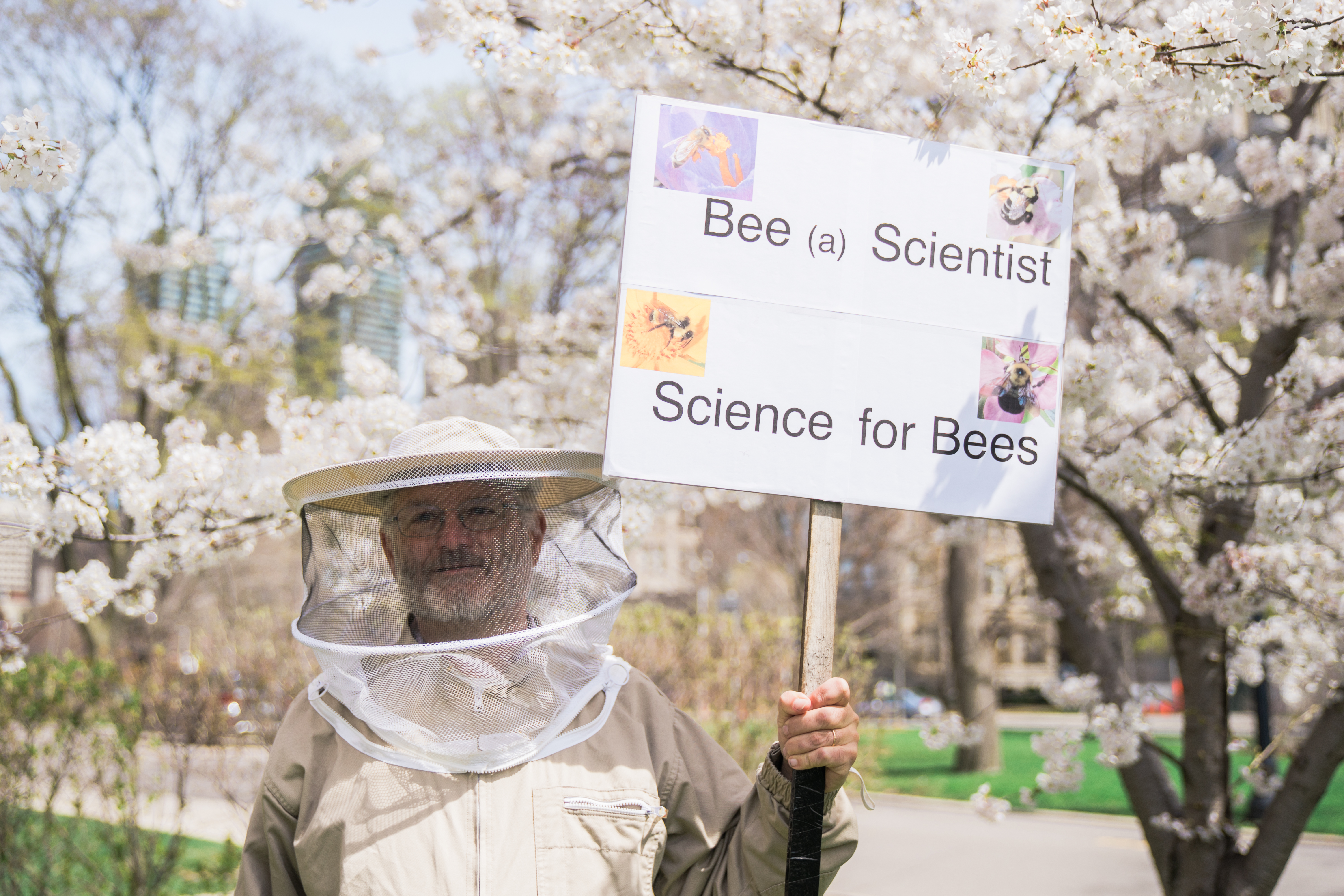
Name: Dr. Clement Kent
Occupation: Senior research associate in bee genomics at York University
Why I’m marching: I think for many of the same reasons that everyone else is. There are many anti-science forces in the world and we want to just show that science is something that many people appreciate.
What’s goin’ on with the genomes of bees?: There are many environmental factors such as diseases, pesticides, loss of habitat, that can be reflected in selective pressures on the genomes of bees. By studying that we hope to figure out how to ameliorate those pressures.
How often are you out in the field?: I mostly work at a computer and other lab members collect the bees. I do get to go out and work with the beehives, which I find very relaxing.
Is there anything unique about the genomes of our beloved Toronto bees?: Absolutely. I’m working on a paper now about a species of bumblebee that used to be the third most common species in Ontario, and now you can’t find it around here at all. It turns out, within the genomes of this particular species, there are signs that a number of genes related to the immune system are under pressure.
